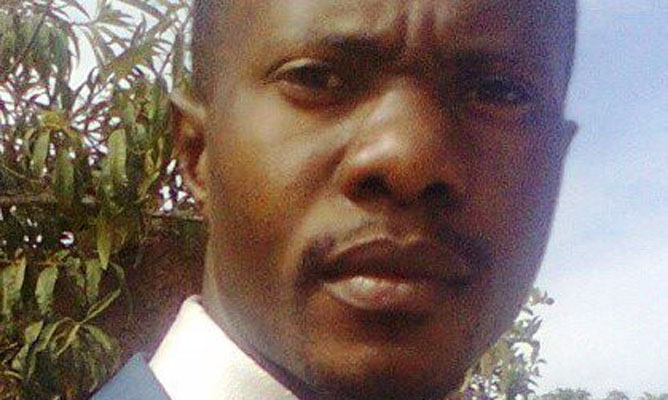
THE culture of political intolerance entrenched by former President Robert Mugabe’s rule may still be a dreadful reality staring Zimbabwe in the face and, unfortunately, a factor courting the attention of the world.
By Learnmore Zuze
The callous attack on National People’s Party (NPP) leader Joice Mujuru last Thursday in Glen Norah and Glen View, Harare, has, naturally, become a talking point.
It bears testament to the fact that no one in their right senses would want a return to “Mugabeism”.
If President Emmerson Mnangagwa is truly serious about winning the hearts of neutral Zimbabweans, then the recent orgy of political violence against Mujuru and her party presents an opportunity to show if he is cut from a different block from his indifferent predecessor Mugabe. The ill-starred orgy of violence invokes a sense of shock in many of us; we thought Zimbabwe had moved out of this primitive way of dealing with political opponents or have we?
Mugabe’s departure last November was not only a celebration for the end of an absurd tyrannical rule, but it was also a triumph towards a possible new culture of handling national affairs, from the institutionalised corruption to political tolerance.
Naturally, a sea of expectations lay on Mnangagwa’s shoulders from crisis-weary Zimbabweans who had taken in a lot of abuse from Mugabe and his wife, Grace.
What happened to Mujuru and her party members would not have been news under Mugabe.
- Chamisa under fire over US$120K donation
- Mavhunga puts DeMbare into Chibuku quarterfinals
- Pension funds bet on Cabora Bassa oilfields
- Councils defy govt fire tender directive
Keep Reading
We all knew that no arrests would have been made for the spirited violence; we saw how party functionaries were even rewarded for inflicting pain on political opponents under Mugabe.
There was a clear conflation between being Zanu PF and political intolerance. The world had come to accept it as such.
Thousands in the opposition bear scars and many have died from State-backed terror acts.
It was, therefore, shocking when news of the brutal attack caught wind.
Are we still stuck in the Mugabe culture of doing things is the natural question? The incident gave Mnangagwa critics tonnes of things to say.
As I have always highlighted, it becomes difficult to get an ear when such critics, whose knee-jerk reaction to every move by the current administration is to criticise, get the chance.
Staunch critics of Mnangagwa went into overdrive as if to matter-of-factly state that the President was himself behind the attack.
From various social media, it is now apparent that no one really lends an ear to people who are unswerving critics.
Criticism must be justifiable and logical; it must never be an automated response.
While it is common knowledge that the perpetrators of the Glen Norah violence would have gone unpunished under Mugabe, it is heartening to note that arrests have been made and two of the thugs who attacked Mujuru have already appeared in court.
Zimbabweans are crying for a 360 degrees shift from the vicious culture of intolerance.
No wonder everyone, international community included, has fastened their eyes on the perturbing incident.
The attack was a senseless act displaying nauseating narrow-mindedness that should never be allowed in this post-Mugabe era.
Now, one thing is a fact: The assault was perpetrated by known Zanu PF members.
The question is: Were these excitable and manic members of the ruling party acting on their whims or their actions represented an agenda?
What gave them the spirited courage to trail NPP members with such gusto and devious enthusiasm in a country where the law is supreme?
Did they conceive it a crime that one can exercise their constitutional right in a country as free as Zimbabwe?
There can be no two ways: Mnangagwa must lead the fight against political violence if he is really for the transformation of this nation.
Thousands lie dead in this country because of a political violence wound that was left to fester.
By not coming out openly to condemn these acts, Mnangagwa will only help embolden would-be perpetrators.
How can people be launching an “ED has my vote campaign” when opponents are brutalised in this fashion?
As has been noted elsewhere, Zimbabweans are critically concerned with any modus operandi that closely or remotely resembles Mugabe’s rule.
Mnangagwa’s days in office so far have had their praises and fair share of criticism.
That he has called an end to the extortion of motorists by the criminalised police force under Mugabe was quite commendable.
That he has insisted on the forthcoming elections being free and fair inspires confidence.
Even more, that he has even intervened in a labour dispute between Hwange Colliery Company Limited and its workers reveals concern for the people.
Now, if he is really for the people, Mnangagwa must not only be heard to be speaking against political violence, but must act on it within his party.
He must set an example that violence won’t be tolerated. If he puts his foot down on political violence, then surely we are headed into a truly constitutional democracy.
In this instance, Mnangagwa must understand that silence is complicit.
He must act against violence; the world is watching.
Learnmore Zuze is a law officer and writes in his own capacity.











